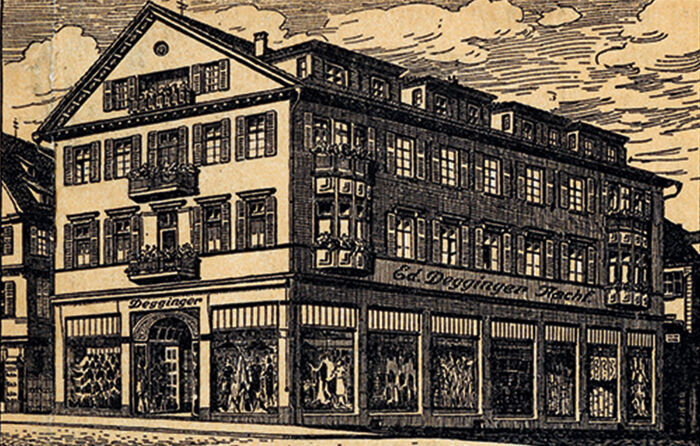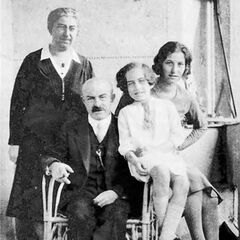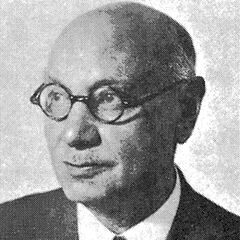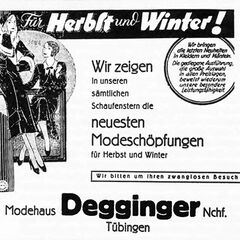Corner of Holzmarkt and Neue Straße: An Example for "Aryanization" – The Oppenheim and Schäfer Families' Clothing Store
Station im Stadtrundgang: History Path to National Socialism
Situated at the corner of Holzmarkt and Neue Straße, Tübingen's biggest clothing store in the 1920s was Eduard Degginger Nachfolger. Jewish merchants Jakob Oppenheim and Albert Schäfer had bought the business in 1905 when it was still a small store in Neue Straße 16. They moved it to the corner house on Holzmarkt in 1913. In 1939, they were foced to sell their business. This is an example for the National Socialist policy of "Arisierung" ("Aryanization"), the expropriation of Jewish property.
Keeping the name Eduard Degginger Nachfolger, (Eduard Degginger was the previous owner, "Nachfolger" means "successor"), Jakob Oppenheim and Albert Schäfer remodeled the house on Holzmarkt into a modern business building with large display windows. Female Tübingers bought the latest fashion here. The business flourished.
On April 1, 1933, during the boycott of Jewish businesses throughout the Reich, brown-shirt stormtroopers from the Sturmabteilung ("Storm Detachment," SA) prevented customers from entering the store. Liselotte, daughter of Albert Schäfer, remembered: "My parents returned home that night crying, but they thought this episode would pass by." National Socialist policies aimed at driving Jews out of the economy. By late 1938, Jewish citizens had to sell their businesses and companies to "Arier" ("Aryans"), that is, non-Jews. Usually the sales price was very much below the real value of the respective enterprise. Karl Haidt, Tübingen Gemeinderat (town councilman) for the Nationalsozialistische Deutsche Arbeiterpartei (National Socialist German Worker's Party, NSDAP) , bought the Eduard Degginger Nachfolger clothing store.
The restitution case in the 1950s resulted in a compromise agreement with the daughters of the previous owners. The Haidt fashion store was in existence until 2007. There were two additional Jewish families in Tübingen who owned textile stores, lost their livelihood, and had to emigrate. The men's clothing store Herrenkleidung Leopold Hirsch in Kronengasse 6 was "aryanized" in 1938; the smaller textile business of Gustav Lion in Neckargasse 4 had to close in late 1933 due to the boycott.
Image 1
Clothing store Eduard Degginger Nachfolger (Eduard Degginger was the previous owner, "Nachfolger" means "sucessor") in the 1920s. Image: City Archives Tübingen
Image 2
Selma and Albert Schäfer with their daughters Hertha and Liselotte in 1929. Albert Schäfer died in 1941 as the result of his 1938 concentration camp imprisonment; Selma Schäfer was deported to Riga in 1941 and murdered there. Earlier, their daughters Hertha and Liselotte had been able to flee to the USA and to Palestine, respectively.
Photo: Geschichtswerkstatt Tübingen e.V.
Image 3
Jakob Oppenheim in 1940, shortly before escaping to the USA. Jakob and Karoline Oppenheim were the last Jews able to escape from Tübingen in 1940. They moved in with their daughters who had already emigrated to the USA.
Photo: Katzmann Verlag Tübingen
Image 4
Adverstisement in the Tübinger Chronik newspaper, September 26, 1930.
Image: City Archives Tübingen / Tübinger Chronik





